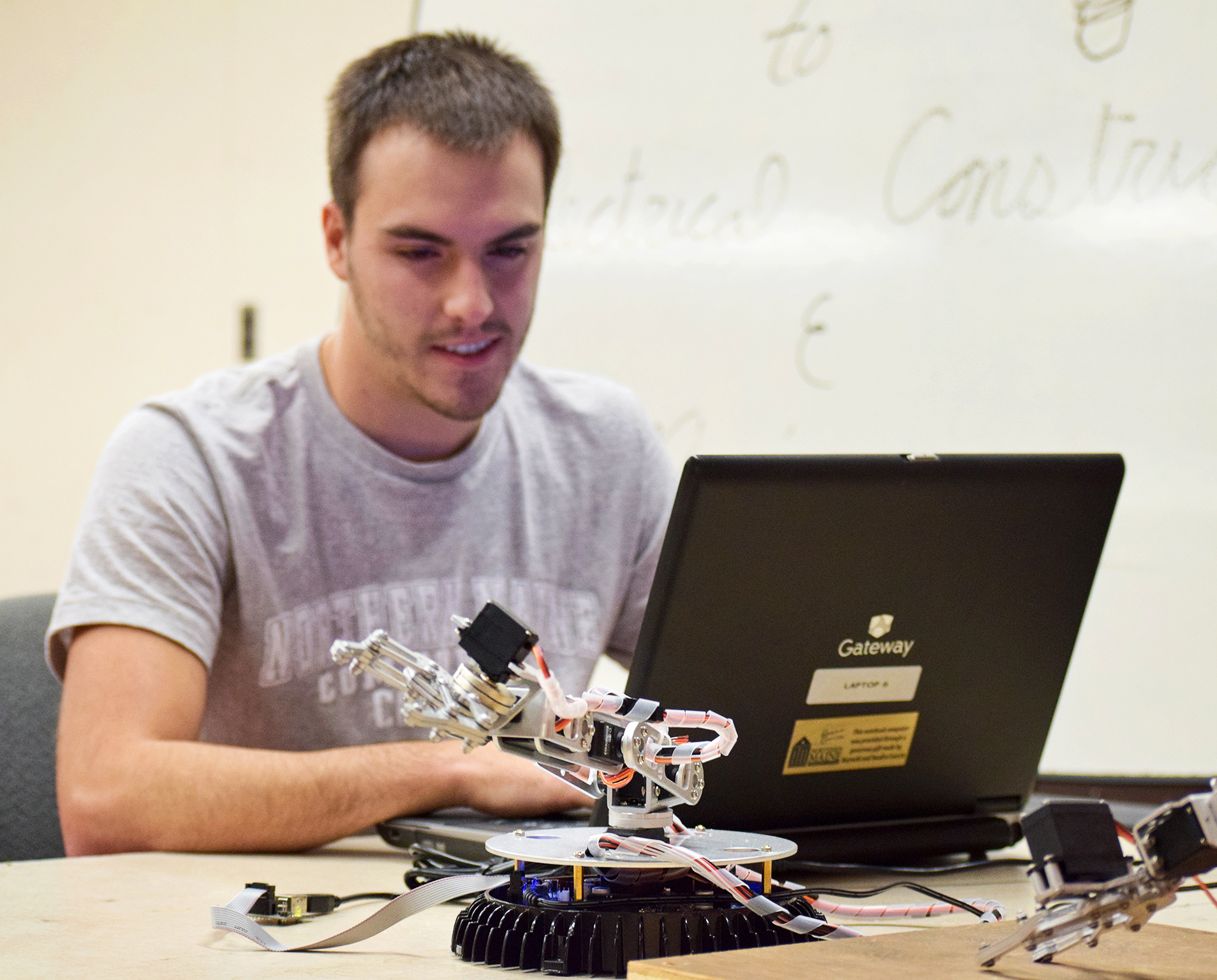
PRESQUE ISLE, Maine — The high-tech future of industry is now at Northern Maine Community College, as students in the Electrical and Construction Maintenance program are using robotics to develop their skills.
Instructor Todd Maynard said science and technology are extremely important for today’s students as they are a pathway to career opportunities in the future.
“Engaging in technology activities with students’ help can stimulate interest in those fields, develop mastery of necessary technologies and energize the classroom,” he said.
Robotic arms are used more and more in assembly lines, but they are also becoming more prevalent for uses in the medical field — particularly for surgery. Electricians are the ones who build these arms and program them for use in all capacities.
According to the International Federation of Robotics, since 2010, the demand for industrial robots has accelerated at an increasing rate. By 2020 more than 1.7 million new industrial robots will be installed in factories around the world.
Those figures illustrate a growing demand for workers with the skills needed to operate and maintain the expanding technology.
“Twenty years ago, robotics were limited to simple structures and motors,” said Maynard. “Now they are sophisticated enough to employ a multitude of sensors and motors as well as interface with a desktop computer, or programmable logic controller to allow for robust programming experiences, all at a cost that makes them accessible to the classroom.”
Pamela Buck, department chair of Trade and Technical Occupations, said the experience of building and programming robotics reinforces what is being covered in other courses and more importantly gives the students some real world experience, which will pay off after graduation.
“Robotics are used more in industry and it is important for our students to have this new equipment, and the hands-on experience of programming the robotics, to perform specific tasks,” said Buck.
Creating high paying and skilled jobs has been a side benefit of automation. According to a recent industry letter from Joe Gemma, president of the International Federation of Robotics, “There is clear evidence that humans will remain central to effective automation strategies which are key to improving productivity and economic growth. As in the past, this wave of technological change will alter job profiles. The evidence points to this mostly being in the direction of higher-skilled, higher-paid workforce.”
Buck said the incorporation of robotics into the classroom shows how the curriculum is keeping up with industry demands.
For more information on the Electrical and Construction Maintenance program, visit nmcc.edu.







